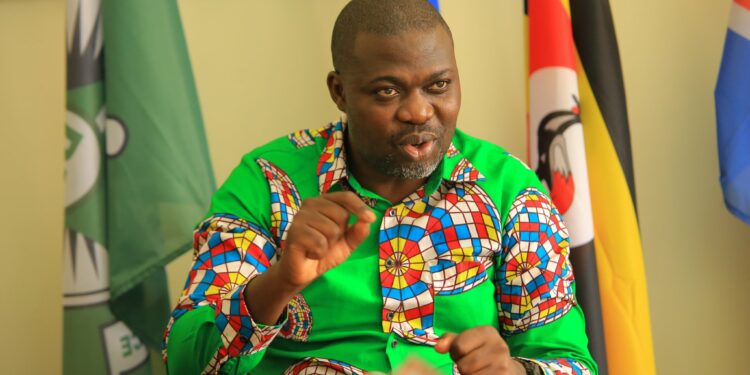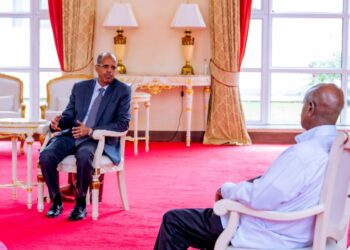The Democratic Party (DP), Uganda’s oldest political party, is grappling with a severe crisis under President Norbert Mao’s leadership, as its parliamentary presence has dwindled from 15 MPs in 2016 to just six in 2025. The recent defection of three MPs—Fortunate Rose Nantongo, John Paul Mpalanyi (Kyotera), and Semakula Luttamaguzi (Nakaseke)—to the National Unity Platform (NUP) has intensified criticism of Mao, with Bukoto Central MP Richard Sebamala accusing him of orchestrating DP’s decline. Sebamala is rallying party members to join his campaign to oust Mao and restore DP’s legacy of “Truth and Justice.”
Mao’s leadership has been undermined by a controversial 2022 cooperation agreement with the ruling National Resistance Movement (NRM), which saw him appointed as Minister of Justice and Constitutional Affairs. The deal, coupled with perks like an East African Legislative Assembly seat for DP’s Gerald Siranda, has alienated loyalists who accuse Mao of compromising DP’s opposition identity for personal gain. This has fueled a wave of defections, slashing DP’s parliamentary seats from 15 in the 10th Parliament to nine in 2021, and now six, while also reducing its Electoral Commission funding.
The rise of NUP, led by Bobi Wine, has further eroded DP’s base, particularly among urban and youth voters. Mao’s 2021 presidential bid, which secured only 0.56% of the vote, and his failure to counter NUP’s aggressive recruitment strategy—described as a “transfer window”—have left DP vulnerable. The defection of prominent figures like Masaka’s Namutawa to NUP underscores Mao’s weakening grip on the party.
Sebamala, who rose to prominence by defeating former Vice President Edward Ssekandi in 2021, has emerged as Mao’s chief critic. “Mao is presiding over the death and funeral of DP,” Sebamala declared at a recent rally. “We need a new physician to save us.” Positioning himself as a champion of DP’s independence, Sebamala rejects NRM alliances and pledges to restore the party’s opposition roots. His transparent leadership style and focus on grassroots mobilization have sparked enthusiasm, with social media campaigns under #SebamalaForDP amplifying his message.
While Mao’s supporters cite his past successes, such as securing 15 MPs in 2016 and contributing to Lord’s Resistance Army peace talks, these are overshadowed by recent failures. The NRM pact has failed to deliver tangible benefits for DP members, and allegations of Mao rigging delegate lists for upcoming party elections have deepened internal divisions. Critics argue his reluctance to step down reflects a disconnect with the party’s struggling base.
Sebamala, by contrast, is gaining momentum with a vision to unify DP’s factions and rebuild its appeal to younger voters. “DP’s glory isn’t lost—it’s waiting to be reclaimed,” he told supporters, emphasizing a return to the party’s historical values. His 2021 electoral success demonstrates his ability to challenge entrenched power, positioning him as a credible leader to counter NUP’s growing influence.
As DP faces an existential crisis, Sebamala’s challenge to Mao is a pivotal moment for the party’s survival. With NUP poised to attract more defectors, DP’s future hinges on leadership that can rally its base and restore its relevance as a formidable opposition force.
Sebamala’s campaign offers hope, but time is running out for Uganda’s oldest party to reclaim its place in the nation’s political landscape.
Do you have a story in your community or an opinion to share with us: Email us at editorial@watchdoguganda.com








